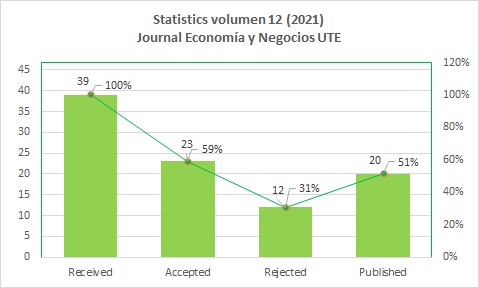Digital Income - Analog Taxes
DOI:
https://doi.org/10.29019/eyn.v11i2.823Keywords:
Tributes, Taxes, Digital businessAbstract
In mid-2019 in Japan, the G20 agreed to create a digital tax (the draft of which will be debated in the first months of 2020, and even from this date it is already intended to start changing the legislation in some countries), aimed at large companies our operations rely mainly on the internet, to generate income such as Facebook, Amazon, Google, Netflix, Uber, Spotify, Airbnb, among others. This digital rate is aimed at: large network companies pay taxes not based on their geographical location (tax residence) as it is currently done, but based on the users of each of the countries in which they provide the service, to avoid in this way the existing legal loopholes, due to the lack of updating of the laws. Pretending to be fairer when collecting taxes for all the actors: without tax havens, subsidiaries, among others. This work seeks to contribute to the debate generated in relation to the imposition of this digital rate. This article is divided into the first instance in the review of Ecuador’s tax regulations, and in the second instance the implication of a digital rate in the Ecuador’s tax coffers.
Downloads
Downloads
Published
How to Cite
Issue
Section
Categories
License
Copyright (c) 2020 The Author

This work is licensed under a Creative Commons Attribution 3.0 Unported License.
The articles and research published by the UTE University are carried out under the Open Access regime in electronic format. By submitting an article to any of the scientific journals of the UTE University, the author or authors accept these conditions.
The UTE applies the Creative Commons Attribution (CC-BY) license to articles in its scientific journals. Under this open access license, as an author you agree that anyone may reuse your article in whole or in part for any purpose, free of charge, including commercial purposes. Anyone can copy, distribute or reuse the content as long as the author and original source are correctly cited. This facilitates freedom of reuse and also ensures that content can be extracted without barriers for research needs.
Creative Commons Attribution 4.0 International License
The Journal Economía y Negocios is distributed under a
Creative Commons Attribution 4.0 International (CC BY 4.0).

In addition, the journal Economía y Negocios guarantees and declares that authors always retain all copyrights to the original published works without restrictions [© The Author(s)]. Acknowledgment (BY): Any exploitation of the work is allowed, including a commercial purpose, as well as the creation of derivative works, the distribution of which is also allowed without any restriction.















